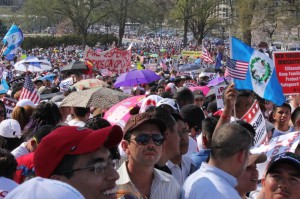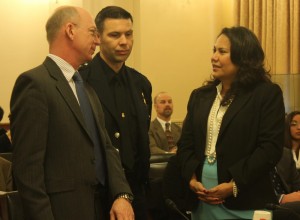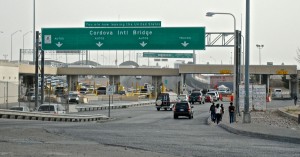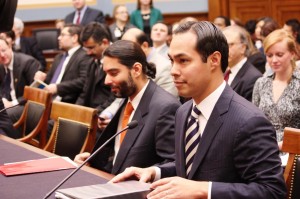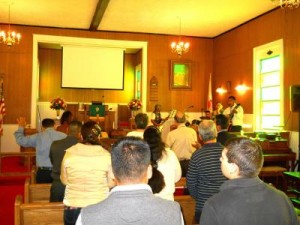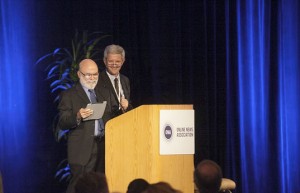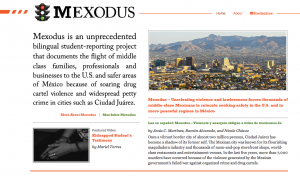Thousands gather on Capitol grounds to rally for immigration reform
|
WASHINGTON – Rosa Murguia couldn’t help but cry Wednesday as she recounted how she missed her last chance to see her brother alive because she didn’t have the proper documentation to return to the United States if she visited her native Dominican Republic. Murguia, 62, of Sterling, Va., is one of thousands of people who stood in 90 degree heat on the West Lawn of the Capitol to rally for immigration reform that includes a path to citizenship. “I think this reform should be to protect people,” Murguia said. “Too many people have been cheated and hurt, I’m one of them, it’s not right for hard workers to live in shadows.” Gustavo Torres, rally organizer and executive director of CASA in Action, said the rally was three months in the making, and he was happy with the turnout.
